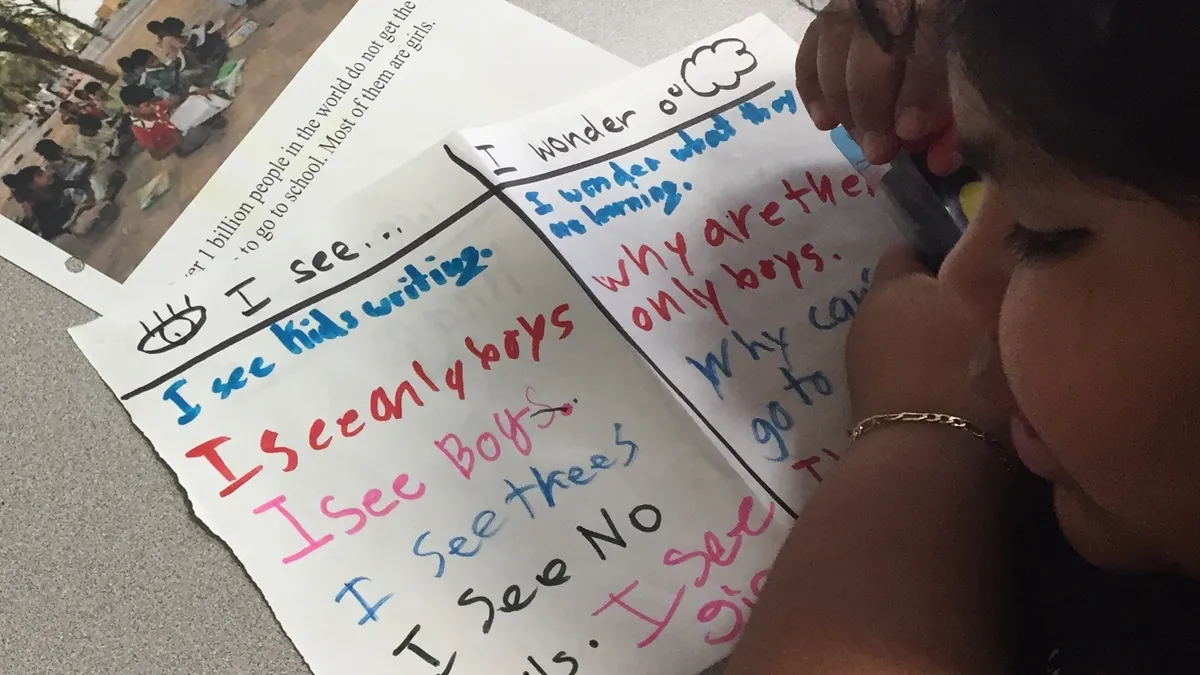Dive Brief:
- The pandemic severely impacted the learning trajectory of English language learners, and nearly 40% of ELL educators around the world say some students should have been held back due to related learning delays, The 74 reports, citing data from a survey by ESL resource provider Off2Class.
- About half of the 669 respondents were educators based in the United States, while many others were American educators living abroad. Though 56% said they thought ELL students' education was adversely affected, most respondents did not say the pandemic affected ELLs significantly more than their English-speaking students.
- One of the issues cited by respondents was students' difficulty with pronunciation, as students typically learn to pronounce words by mimicking mouth movements, which are more difficult to discern online. Though 44% of respondents said they had adequate technology to deliver lessons, a quarter said they did not.
Dive Insight:
Though some education experts supported holding back students who fell behind during the pandemic, and some states passed retention laws focused on doing so, those efforts largely faced pushback from parents. A National Parents Union survey of 739 K-12 parents found 81% wouldn't have requested holding back children who experienced learning.
Los Angeles Unified School District retained less than 1% of students in grades 1-8. In Newark, New Jersey, the retention rate dropped to lower than its pre-pandemic level.
Brittney Davis, a Ph.D. candidate in the community well-being program at the University of Miami who has taught in Washington, D.C., and Houston, asserts in an Education Trust column that retaining students has not been shown to be effective. She feels holding students back as they try to catch up from pandemic-related losses would yield the same results.
Davis suggests retention can be costly and ineffective without proper supports, and said accelerated learning would be better suited to get students up to speed through practices like extending the school day and providing tutoring.
In Michigan, where a Read by Grade 3 law was passed in 2016, a report from Michigan State University tracking its impact through spring 2020 found 3rd-grade reading achievement improved each year after implementation. The law was designed to improve literacy rates through early monitoring and identification of struggling readers, requiring students to repeat 3rd grade if they don’t meet state standards.











